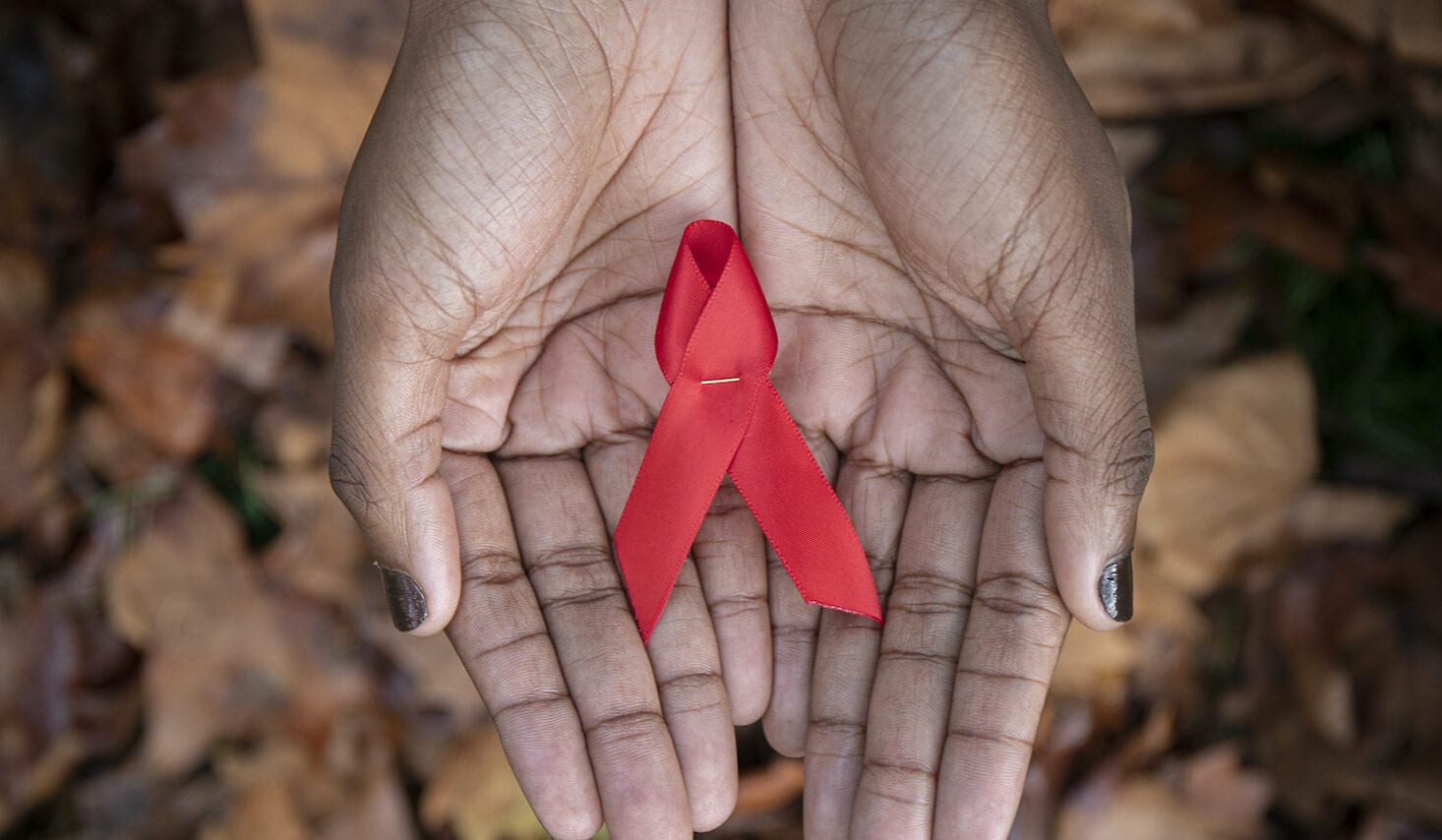
Like most of 2020, World AIDS Day, which takes place annually on 1 December, feels very different this year. Normally World AIDS Day is about striking the correct balance between commemoration and celebration – remembering the many people in the UK and globally who have died of AIDS, while simultaneously highlighting medical innovations and raising awareness to break down the stigma which still surrounds HIV.
Even on World AIDS Day though, the virus which will be at the forefront of most people’s minds is coronavirus rather than HIV. England and Northern Ireland are in lockdown, with restrictions also in place across Scotland and Wales. Some great virtual events have taken place in the run up to 1 December, capturing the World AIDS Day spirit, even if people are feeling online fatigue.
Coronavirus has had a huge impact on people living with HIV. I am a member of several online support groups for people living with HIV. When coronavirus first impacted the UK in March, my experience was that HIV positive people feared the health implications.
There was considerable anxiety about what would happen if they or a family member caught coronavirus and for the most part this was hypothetical, although a few people had been symptomatic prior to the widespread introduction of testing; for example, temporarily losing their sense of taste.
When coronavirus first impacted the UK in March, my experience was that HIV positive people feared the health implications.
As we moved through summer and then into autumn the conversations began to change. I increasingly encountered people living with HIV who were facing unemployment or even homelessness. There were also more people living with HIV who had tested positive for coronavirus and were now in the process of recovery. For some people this recovery was proving lengthy. At least two were dealing with long COVID, which had left them housebound.
England had just started its second lockdown when Public Health England released its HIV data at the beginning of November and I thought this provided some much needed hope. The data is released annually, usually several weeks before World AIDS Day, and reflects the previous year (these statistics cover the period 2019).
HIV diagnoses dropped to 4,139, a 10% fall on the previous year and a fall of 34% from a peak of 6,312 diagnoses reported in 2014. Gay and bi men accounted for much of this fall, with diagnoses among Black African people not declining as rapidly. There are also clear geographical gaps in the HIV response, late diagnoses remain an ongoing problem, but overall there was much to be pleased about.

It is against this backdrop that the HIV Commission is launching its recommendations on World AIDS Day. The Commission was set up at the end of 2019 and is an initiative from Terrence Higgins Trust, National AIDS Trust and Elton John AIDS Foundation. It is an independent inquiry, with the purpose of setting out how England can achieve its target of eliminating new HIV transmissions by 2030, with important learnings for the whole UK. This underlines how much medical progress has been made in preventing, testing for and treating HIV.
The Commission has an advisory panel whose members are drawn from across the HIV sector, including HIV clinicians, representatives from charities and patient groups. This advisory panel reports to 12 commissioners, who have broad inter-disciplinary skills. You may not have heard of all of these people before in the context of HIV campaigning. They do include well known members of the LGBTQ+ community such as Wes Streeting MP and rugby star Gareth Thomas.
Other Commissioners include Inga Beale – the former CEO of Lloyd’s of London, Alison Saunders – one of the UK’s leading dispute resolution lawyers and the Rev. Steve Chalke – a prominent faith leader. These people come from a real range of backgrounds and bring fresh perspectives to the challenges posed by HIV. We have made much progress around HIV in the UK, but by bringing on board new people, leaders in their respective fields, and by looking at HIV through a different lens we may find new approaches and have some of our own preconceptions challenged.
There is much cause for people living with HIV to feel hope for the future.
The HIV Commission is making 20 recommendations on World AIDS Day. One of their flagship policies is that whenever blood is taken in England – regardless of the person’s gender, ethnicity or sexuality – it should be tested for HIV.
2019 was a record year for HIV testing, but over half a million eligible people were not tested for HIV in sexual health clinics alone. In 2020, while there have been large and successful postal testing programmes, many people will not have accessed testing due to the partial closure of sexual health clinics as a consequence of coronavirus.
It is hard to know how this year’s World AIDS Day will be remembered in future years. World AIDS Day 2021 will, fingers crossed, be much more like the other World AIDS Days which we were able to mark together. As the trends from the 2019 data demonstrate and the recommendations of the HIV Commission attest to, there is much cause for people living with HIV to feel hope for the future. But there are some people living with HIV whose lives have been severely – perhaps permanently – impacted by coronavirus and we must take their needs into account.
Head to the HIV Commission’s website to learn more.
If you have questions or need support around HIV, please contact THT Direct for free and in confidence.



